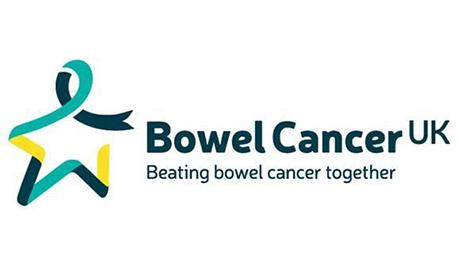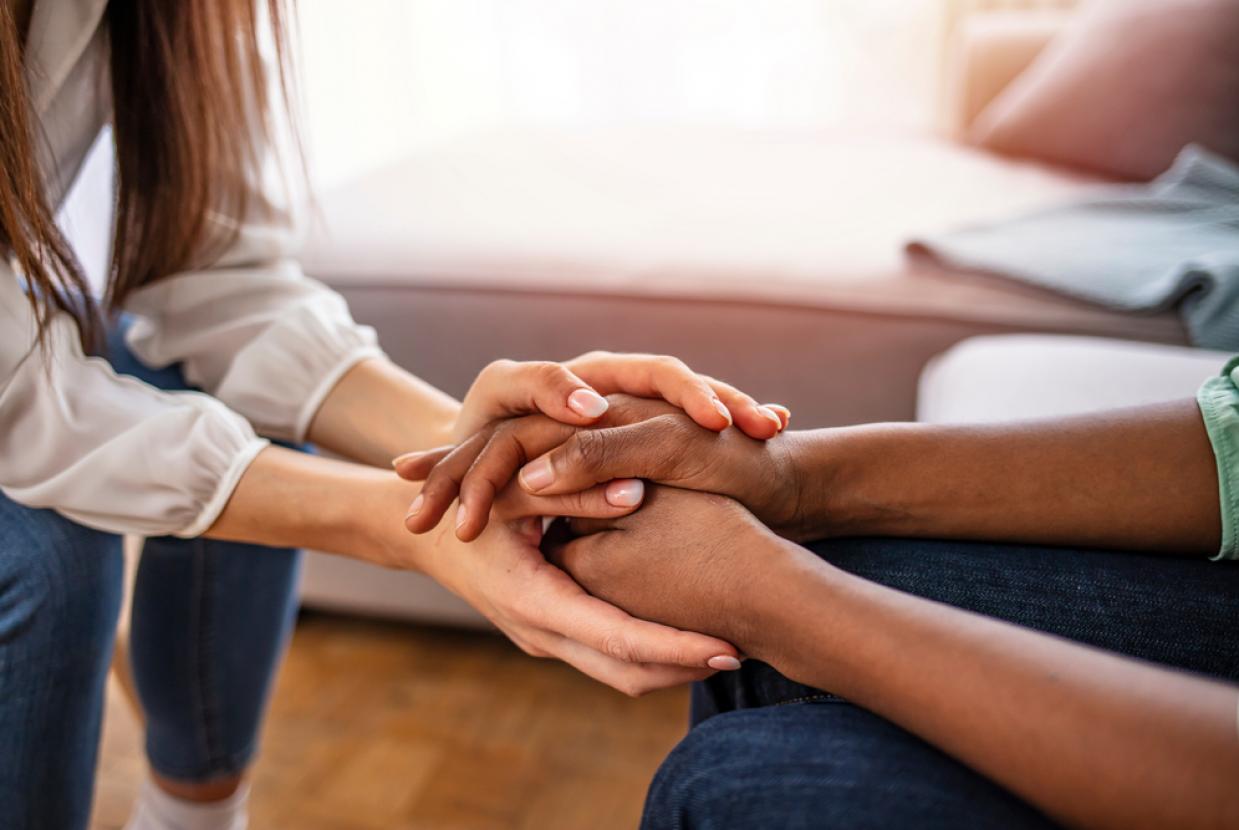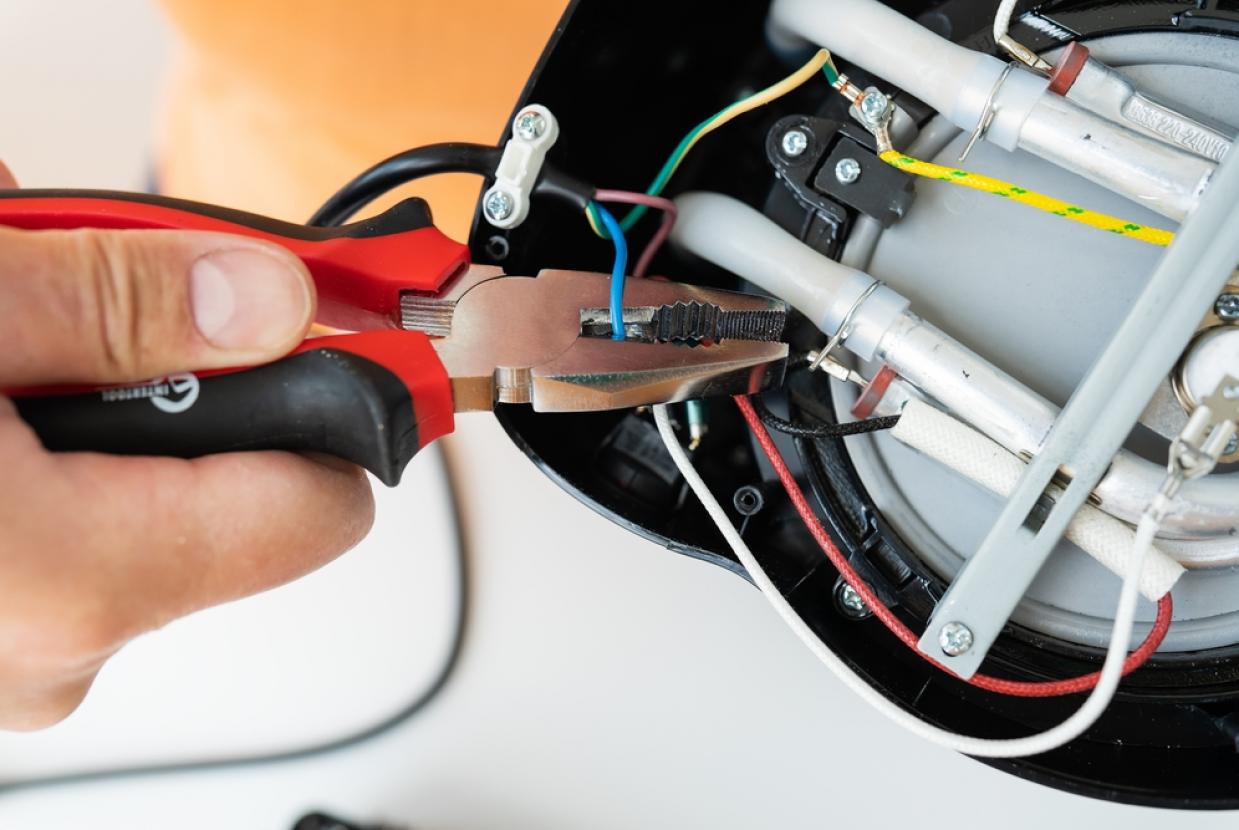Bowel Cancer Awareness Month: Coping With A New Diagnosis
Mental Health / CancerIn the early days following diagnosis, you may feel all sorts of emotions. People have described feeling shocked, numb, sad, scared or angry among other things. For some, there is a sense of disbelief that this is really happening. Sometimes people lose interest in the things they enjoy or have trouble sleeping or eating. Most of these feelings will ease off in time. Talking to family and friends can help.
If you have any difficult feelings that don’t go away or are hard to cope with, speak to your healthcare team or GP. They can refer you to a counsellor or psychologist, or they may offer you medicines that can help.
For some people there can be a sense of relief that they finally know what’s wrong with them. Some people deal with their diagnosis in a practical way and focus all their energy on getting better. Your mind will be busy processing all the new information about diagnosis and treatment, so it’s normal to have problems concentrating or remembering things.
Waiting for treatment and test results can be stressful and worrying. Finding something to keep you busy can help. This doesn’t need to be anything too tiring but could be something like visiting family if you feel up to it, or a hobby that you can do for short periods of time. Finding out what to expect from the treatment can help you feel more in control.
If you’ll be spending time in hospital, you could take something to help you pass the time, like magazines, a phone, tablet, or audio relaxation exercises. Earplugs and an eye mask may help you to sleep better.
People who have been through treatment often say that once treatment starts it’s a bit like being on a rollercoaster. There can be ups and downs, but they know that their healthcare team is there to support them. Your team is interested in how your diagnosis and treatment is affecting your emotions and your daily life so let them know if you think you need some help.
You and your partner
Your relationship with your partner may change when you’re diagnosed with bowel cancer. You may feel a closer bond between you as you deal with your diagnosis together. Or one or both of you might be finding it difficult to cope. Your usual roles at home may have changed, for example if you stop working or if you’re not able to do things around the house that you used to. You might find it difficult to get used to these changes.
Try to keep talking and listening to each other. Suggest ways your partner can help you, for example, by answering phone calls from friends and family. You may want to ask your partner to go to your hospital appointments with you. This gives you both the chance to be involved in discussions about test results and treatments. Your healthcare professional may also find it helpful to talk to you both together and to get to know your partner.
Your partner might need support themselves. Our online community is a good way for partners to share experiences with others.
Coping on your own
If you live alone, there may be times when you feel you don’t have the support you need. Joining a support group can help you meet others who are going through similar experiences to you. The Macmillan Cancer Support website lists support groups in your area.
Our online community allows you to chat to others at any time of the day or night. You can also get support and information from our Ask the nurse service.
Telling people
Talking about your cancer can sometimes help you feel closer to the people who are important to you and can help you cope with your diagnosis. But people aren’t always used to talking about cancer and there can be many strong emotions or difficult situations that make it harder.
Choose who you want or need to tell. If possible, start with telling those who are likely to react in a supportive way – people you think might help you. Sometimes people are upset, shocked and may struggle to think of what to say. If you’re feeling uncomfortable with any silence you could let the person know that you don’t expect them to know what to say and return to the conversation later. Or you could ask them to help you with a particular task.
Friends and family can be a great support, even if you’ve had a difficult relationship before your diagnosis. Don’t be afraid to take up their offers or to ask for help. If you’re used to managing by yourself, this can take a bit of getting used to. But by accepting help, you can save your energy for the things that are most important to you.
If you have a lot of people to tell, friends or family may help you. Or you might want to send a group email or text. Some people write blogs or set up WhatsApp groups so they can update everyone on their progress at the same time.
There may be some people you don’t want to talk to about your cancer. You might want to practice a few things to say, so you can use them if you need to. One example might be, “I’m not bad thanks, how are you getting on?” to turn the attention away from you and on to the other person.
Talking to children
Whether you have children, grandchildren or other young children in your family, talking to them about cancer can be difficult and upsetting for you both. Some people are unsure what the ‘right’ things to say or do are and may try to protect the child from being upset by not telling them what is happening. But even very young children may sense when something is wrong in the family and they can get more worried when they are not told what is going on. They may even fear that something worse is happening. Talking to children also helps them understand so they don’t rely on wrong information from other places like the television or internet.
You don’t need to tell the child everything at once. Tell them in a language that they will understand and then be prepared to answer their questions. You can check that they have understood by asking them to tell you what is happening in their own words. If you don’t have an answer, it is okay to say that you don’t know. It is also okay to cry or become upset in front of the child because it gives them permission to express their emotions as well. Ask how they are feeling and try to find out what they are worried about. Generally children need to be reassured that they will still be loved and cared for. Young children may want to know who will make dinner or take them to school if the person who normally does this is unwell.
You may want to tell your child’s school or any clubs they go to. This will help the staff to support your child and understand any changes in their mood or behaviour.
If you feel you need some support with telling children about your cancer, speak to your specialist nurse. If you have a Maggie’s centre in your area, they can also offer you support. Macmillan Cancer Support and Cancer Research UK have information on talking to children about cancer.
Telling an older relative
Your relative may already know that you have been having tests for a medical problem. They may have no idea that you have been worried about your health or they may have noticed that something was wrong. Whatever the situation, telling an older relative that you have cancer can be difficult. You may worry about upsetting them or you may need to think about their health. For example, if they have dementia, they may find it difficult to understand your cancer.
You may decide that you don’t want to tell your relative. Be aware that someone else may tell them or your relative may notice that something is different. You know your own family best. You may want to talk to another member of the family or friend about what to do.
You can’t make difficult or bad news good, but these things may make it a bit easier for you and your relative.
- Think about whether you want to tell your relative straight away or wait until there is a treatment plan to talk about. This can give you something positive to focus on.
- Is there a good time of day to tell your relative? If you tell them earlier in the day they may have more time to take the news on board or contact someone else for support. If you tell them nearer the end of the day, both of you may find it difficult to sleep.
- Think about taking a booklet that explains your cancer.
- If your relative is your parent, they may feel helpless because they haven’t been able to protect their child from cancer. You can let them know how they can help. For example, by asking them to look after grandchildren, help with housework or just be there for a cup of tea and a chat.
- If your relative is in a care home or hospital, you may want to tell the staff so that they can support your parent.
- If your relative has personality or behavioural changes caused by an illness, such as dementia, they may react by saying something that seems thoughtless. Or they may seem to ignore you. These reactions can be difficult but they can be easier to deal with if you prepare yourself for them. You might want to ask someone else to repeat the information to your relative later on.
- Think about what may help you after you have told your relative. Perhaps having quiet time on your own or having someone supportive to turn to.
Getting support and information
Your specialist nurse will be your main point of contact with your healthcare team. They will tell you how you can get in touch with them if you have any questions or worries.
Your GP or practice nurse can also give you support and information. They may offer you a ‘cancer care review’, which looks at what support you need and gives you the chance to ask any questions about your diagnosis and treatment. You should be offered this review within six months of your diagnosis. Ask your GP surgery if they offer this.
You can get in touch with other people with bowel cancer, to share experiences and support on our online community. Your specialist nurse can tell you if there are support groups in your area or you can find a list on the Macmillan Cancer Support website.
There is a lot of information available on the internet, and not all of it is good quality. Cancer Research UK gives tips on how to check whether cancer information on the internet is reliable. Have a look at our list of useful websites for information you can trust.
If you read something on a website that worries you, ask your medical team about it. Otherwise you may end up worrying about things that do not actually apply to you.








































































































































